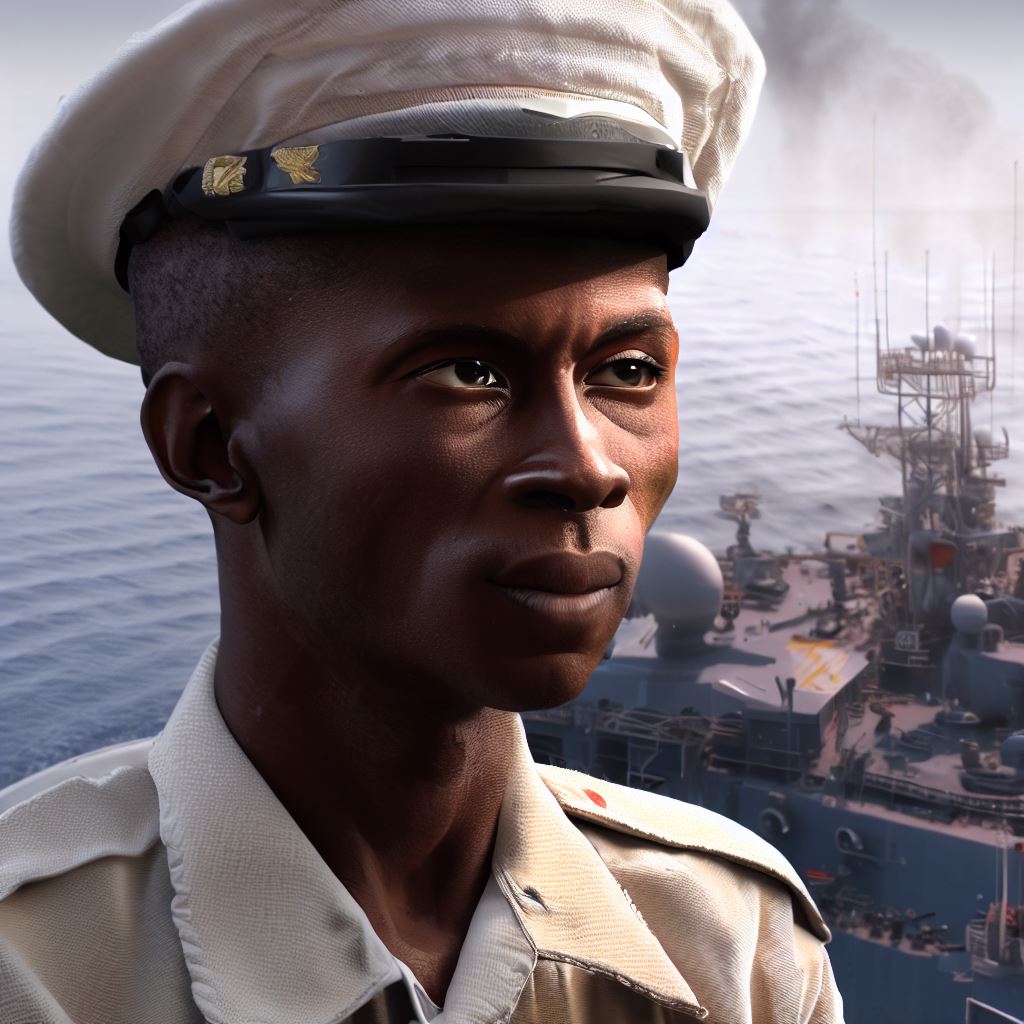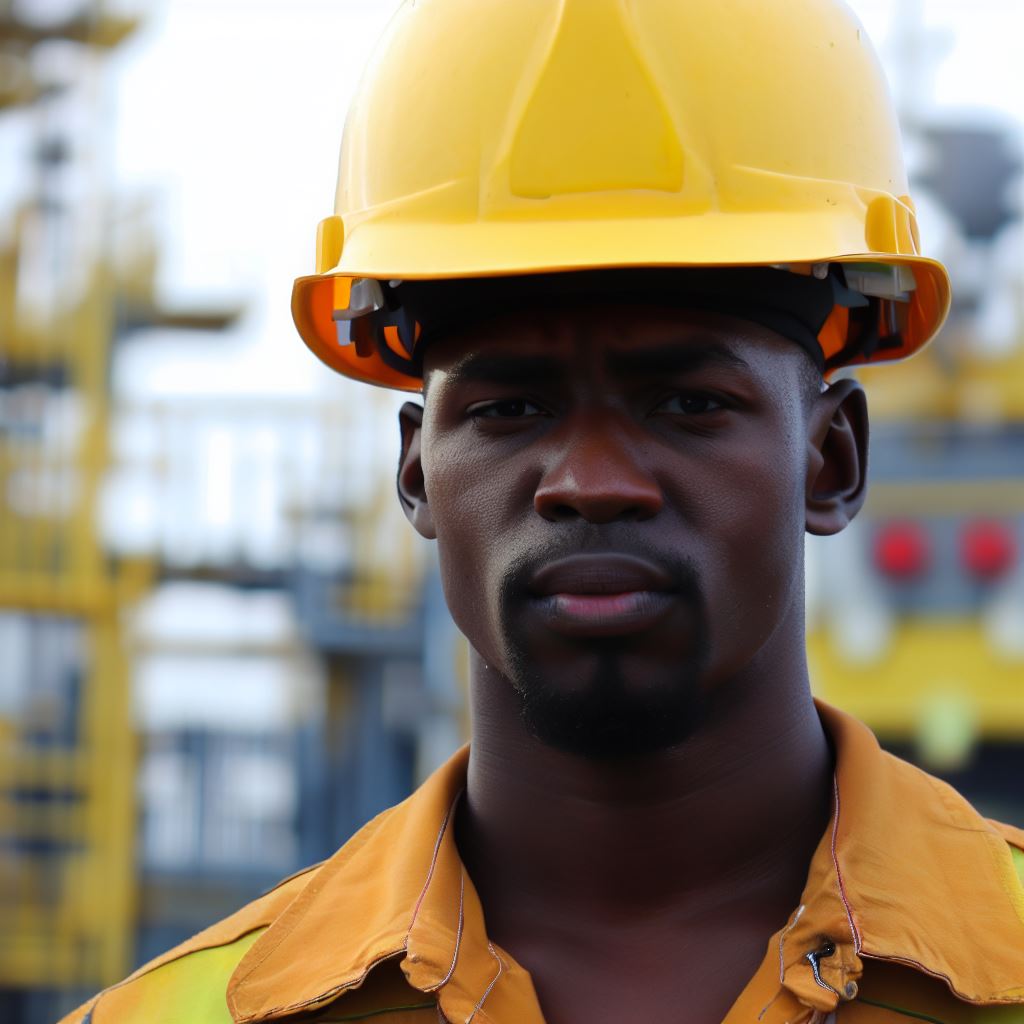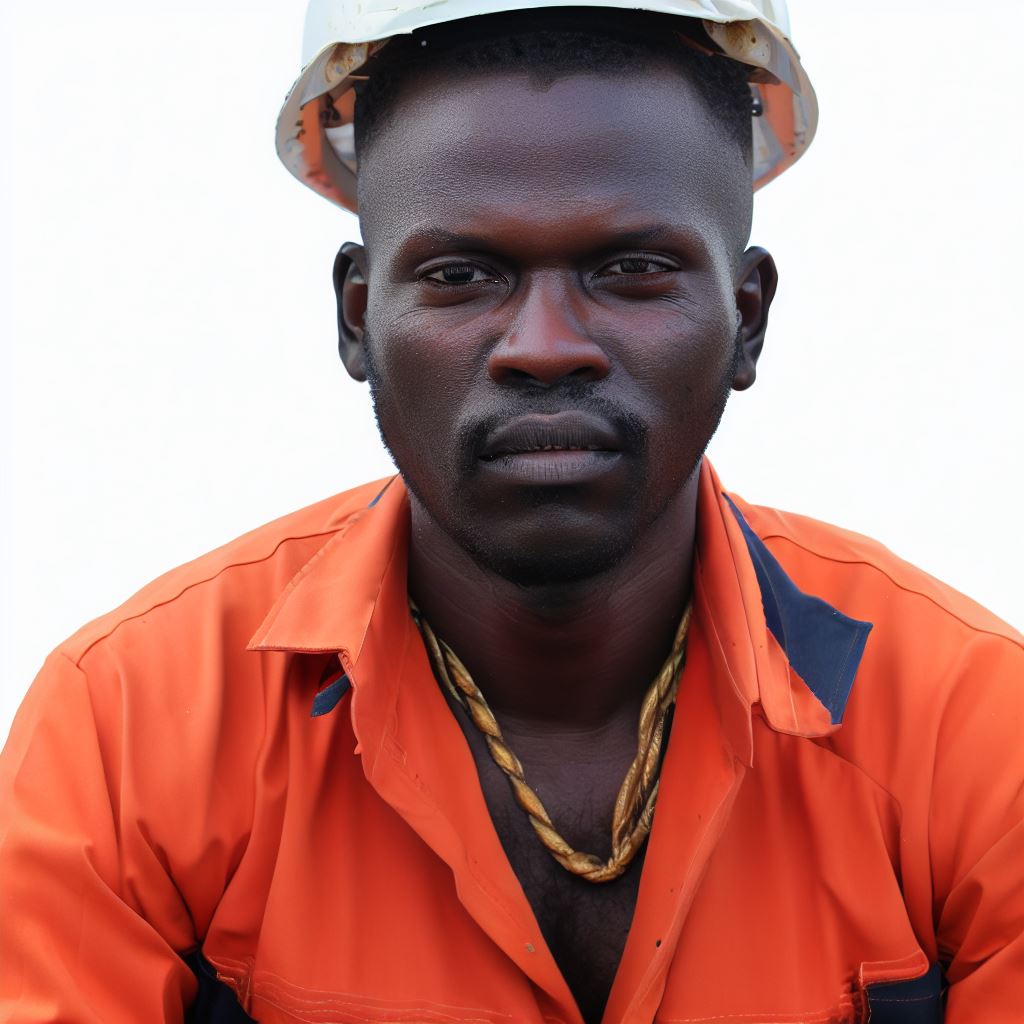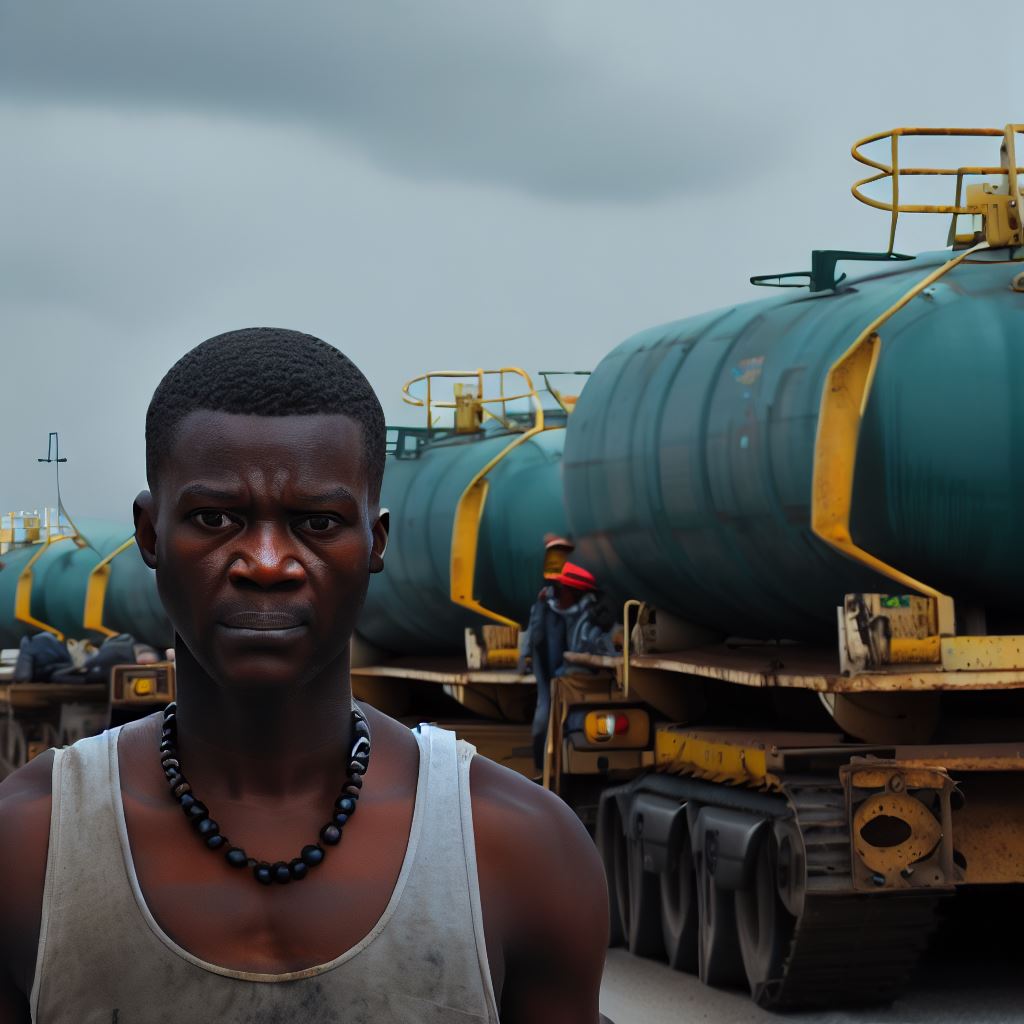Introduction
Women in Nigeria’s maritime industry play a crucial role in sailing and operating oilers.The maritime industry in Nigeria holds great importance due to its contribution to the economy.
Briefly introduce the topic of women in Nigeria’s maritime industry
Women are playing an increasingly important role in Nigeria’s maritime industry. As sailors and oilers, they are breaking down barriers and inspiring the next generation of female maritime professionals.
Provide background information on the maritime industry and its significance in Nigeria
The maritime industry is essential to Nigeria’s economy. It supports millions of jobs and generates billions of dollars in revenue each year. The industry also plays a vital role in trade and transportation.
Here are some key facts about the maritime industry in Nigeria:
- Nigeria has the largest maritime sector in West Africa.
- The Nigerian maritime industry employs over 10 million people.
- The industry contributes over 5% to Nigeria’s GDP.
- Nigeria is a major exporter of oil and gas, and the maritime industry plays a key role in the transportation of these commodities.
Women are making significant contributions to Nigeria’s maritime industry. As sailors and oilers, they are working on ships, rigs, and platforms, and they are playing a vital role in the safe and efficient operation of the industry.
In this blog post, we will highlight the stories of women sailors and oilers in Nigeria. We will discuss the challenges and opportunities they face, and we will celebrate their contributions to the maritime industry.
Historical overview of women in Nigeria’s maritime industry
Traditional roles of women in Nigerian society
- Women in Nigeria traditionally held domestic roles, focusing on housekeeping, child-rearing, and supporting their husbands.
- Their involvement in economic activities was limited, with men predominantly seen as the breadwinners.
- Gender norms enforced societal expectations of women’s subordination, restricting their opportunities outside the household.
Historical barriers to women’s participation in the maritime industry
- Lack of access to education: Limited educational opportunities prevented women from acquiring essential skills required in the maritime sector.
- Cultural biases and stereotypes: Prevailing beliefs and stereotypes deemed maritime jobs as unsuitable for women.
- Gender discrimination: Women faced systemic discrimination, including unequal pay, limited promotion prospects, and exclusion from decision-making roles.
Significant milestones and notable women pioneers in the field
- Rear Admiral Itunu Hotonu: The first female admiral in the Nigerian Navy, breaking the gender barrier in high-ranking positions.
- Captain Chinyere Kalu: The first Nigerian female commercial ship captain, inspiring other women to pursue careers at sea.
- Captain Elizabeth Nkem Egong: The first woman to become a Master Mariner in West Africa, establishing herself as a trailblazer.
Over Nigeria’s history, women in the maritime industry have faced significant challenges due to traditional roles, societal barriers, and discrimination.
However, notable achievements by women pioneers highlight the potential for gender equality and increased female participation in the field.
Encouraging more women to pursue careers in maritime is essential for Nigeria’s maritime industry to flourish and contribute to the nation’s economic growth.
Read: Maritime Schools in Nigeria: Preparing Tomorrow’s Sailors
Current state of women in Nigeria’s maritime industry
Present statistics on the representation of women in the industry
- According to recent data, women make up only a mere 5% of the maritime workforce in Nigeria.
- The number of female sailors and oilers remains significantly low compared to their male counterparts.
The key challenges faced by women pursuing careers as sailors and oilers
- Gender bias and discrimination persist in the industry, making it difficult for women to progress and thrive.
- Lack of awareness about career opportunities in maritime fields limits women’s entry into the sector.
- Limited educational and training opportunities create barriers for women attempting to gain relevant skills.
- Social stereotypes and cultural norms often discourage women from pursuing non-traditional roles.
The social and cultural factors that impact women’s involvement in the industry
- Traditional gender roles assign women to domestic responsibilities, limiting their access to professional opportunities.
- Cultural beliefs regarding women’s physical capabilities make it challenging for them to be accepted in physically demanding roles.
- Family and societal expectations often discourage women from pursuing careers that involve long periods away from home.
- The lack of support networks and role models within the industry hinders women’s progress and development.
The current state of women in Nigeria’s maritime industry is marked by low representation and numerous challenges.
The industry must strive to overcome gender bias, improve education and training opportunities, and create a more inclusive and supportive environment.
By addressing these issues, the maritime sector can tap into the underutilized potential of women and benefit from a more diverse and skilled workforce.
Read: Nigeria’s Ports: A Day in the Life of a Marine Oiler
Initiatives promoting gender equality and empowerment in the maritime industry
Organizations or programs working towards gender equality in the maritime sector
- Women’s International Shipping and Trading Association (WISTA): WISTA Nigeria is part of a global network that promotes women empowerment in the maritime industry through professional development, networking, and advocacy.
- The Board of Pensions Fund for Seafarers (LAPO FPS): LAPO FPS provides financial support to female seafarers by offering loans for career development and business ventures, creating opportunities for economic empowerment.
- Women in Maritime Africa (WIMA): WIMA is an organization that aims to enhance women’s economic development in the maritime sector through training, mentorship, and entrepreneurship programs.
- Nigerian Women in Maritime Service (NIWIMS): NIWIMS focuses on improving gender equality and promoting the welfare of women in the maritime industry through capacity building, advocacy, and networking activities.
- Sealisters’ Club: This initiative provides a platform for female maritime professionals to connect, share experiences, and support each other in their careers, facilitating gender equality within the industry.
The role of government policies and regulations in promoting women’s participation
Government policies and regulations play a crucial role in promoting women’s participation in Nigeria’s maritime industry:
- Gender Equality Bill: The Nigerian government can enact and enforce legislation that explicitly addresses gender-based discrimination, creating a legal framework for equal opportunities in employment and professional growth.
- Affirmative Action: Implementing policies that provide quotas or reserved positions for women in maritime institutions can encourage their representation and agency within the industry.
- Inclusive Education Initiatives: By promoting technical and vocational education targeted at girls and women, the government can equip them with skills necessary for entry into the maritime sector.
- Standardization of Recruitment Processes: Establishing transparent and gender-neutral recruitment and promotion practices can eliminate biases and ensure fair opportunities for women in the industry.
- Gender Sensitization Programs: The government should organize training and awareness programs to sensitize employers and employees about gender equality in the workplace, promoting a positive and inclusive work environment.
Success stories or examples of women who have excelled in the field
- Captain Dada Labinjo: She became the first female Captain in Nigeria’s maritime industry, defying traditional norms and inspiring other women to pursue careers at sea.
- Ngozi Obi: Obi is a well-respected maritime lawyer and expert who has played a significant role in shaping maritime policy and advocating for gender equality in the industry.
- Engineer Funmilayo Sarumi: As the first female marine engineer from Nigeria, Sarumi’s achievements have broken barriers and encouraged more women to enter this male-dominated profession.
- Florence Ita-Giwa: Ita-Giwa is a prominent politician and former Special Adviser on National Assembly Matters in Nigeria. She has actively promoted women’s inclusion in the maritime sector.
- Princess Olufunke Ogunlesi: Ogunlesi is the founder of the Fatgbems Group, a leading oil and gas servicing company.
Her success story serves as an inspiration for aspiring female entrepreneurs in the maritime industry.
These success stories highlight the resilience and determination of Nigerian women who have defied societal barriers and excelled in the maritime industry.
Their achievements contribute to fostering gender equality and empowerment within the sector.
Read: Key Skills Required for Sailors and Oilers in Nigeria
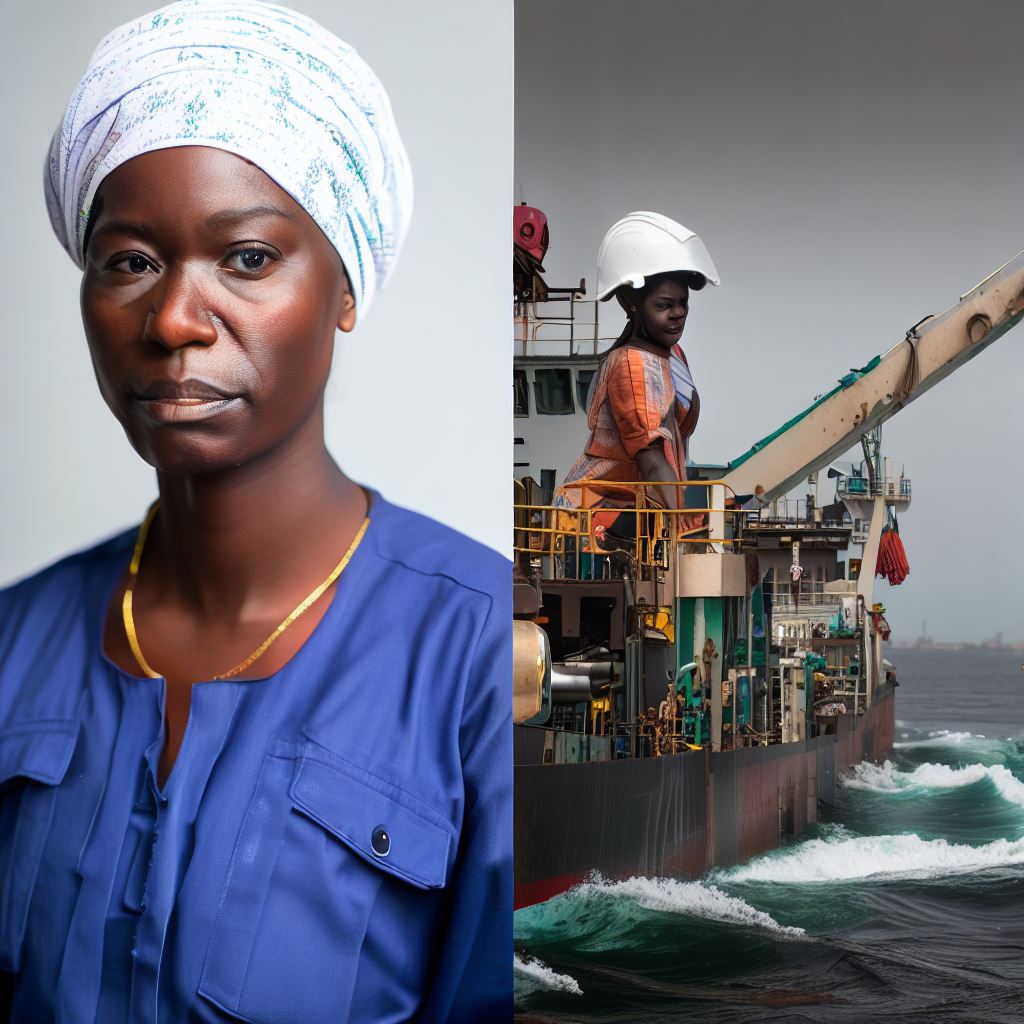
Benefits and opportunities for women in the maritime industry
The economic benefits of diversifying the maritime workforce
- Diversifying the maritime workforce can lead to better decision-making and problem-solving.
- Having more women in the industry can bring fresh perspectives and ideas.
- Increased diversity can also enhance creativity and innovation within the maritime sector.
- Companies with diverse workforces tend to be more adaptable and resilient in the face of challenges.
- Research shows that diverse teams are more likely to increase profitability and overall success.
- By expanding opportunities for women, the maritime industry can tap into a larger talent pool.
- Gender diversity can attract more investments and partnerships, boosting economic growth.
- A diverse workforce can also improve relationships with clients and stakeholders, enhancing business prospects.
The potential for career growth and professional development for women
- The maritime industry offers a wide range of career paths and opportunities for women.
- From sailors and oilers to marine engineers and port managers, women can excel in various roles.
- With the right training and support, women can advance to leadership positions within the industry.
- The demand for skilled professionals in the maritime sector provides room for career growth.
- Organizations that prioritize gender equality often provide mentoring and development programs for women.
- Networking opportunities within the sector can help women establish relationships and access new job prospects.
- Women can also benefit from educational initiatives and scholarships specific to the maritime industry.
- Career mobility within the maritime sector allows women to gain diverse experiences and broaden their skill sets.
The contributions of women to the industry, such as improving workplace dynamics and fostering innovation
- Women bring a unique set of skills and perspectives that enrich the workplace environment.
- Studies show that gender-diverse teams have higher levels of employee satisfaction and engagement.
- Women in leadership roles can serve as role models and inspire other women to join the industry.
- Female representation in the maritime industry contributes to a more inclusive and equitable work culture.
- Women’s presence can help challenge stereotypes and promote gender equality within the industry.
- Women have made significant contributions to maritime safety and security through their expertise.
- Female professionals have initiated innovative approaches to improve sustainability in the maritime field.
- By embracing the talents of women, the maritime industry can drive positive change and progress.
Challenges and strategies for enhancing women’s participation
Address some of the common obstacles faced by women in the industry
- Limited access to education and training opportunities due to societal biases and traditional gender roles.
- Lack of awareness and representation of women in maritime careers, leading to limited role models.
- Gender discrimination and stereotypes that undermine women’s capabilities and potential in the industry.
- Inadequate support systems and workplace policies to accommodate the unique needs and challenges faced by women.
- Balancing work and family responsibilities, often resulting in limited career progression opportunities.
Propose strategies for overcoming these challenges
- Implement mentorship programs that connect female employees with experienced professionals who can provide guidance and support.
- Provide training opportunities and scholarships specifically targeted at women in Nigeria maritime industry.
- Organize awareness campaigns and events to showcase successful women in the field and break gender stereotypes.
- Establish support networks and employee resource groups to create a sense of belonging and foster inclusivity.
- Advocate for policies that promote work-life balance, such as flexible scheduling and parental leave provisions.
The importance of creating an inclusive and supportive work environment
An inclusive and supportive work environment is essential for enhancing participation Women in Nigeria Maritime Industry.
When women feel valued and supported, they are more likely to pursue and excel in their careers. Some key benefits include:
- Increased diversity and innovation: By having a diverse workforce that includes women, new perspectives and ideas are brought to the table, leading to improved problem-solving and innovation.
- Expanded talent pool: By actively recruiting and retaining women, the industry can tap into a larger talent pool, benefiting from a wider range of skills and qualifications.
- Enhanced company reputation: Organizations that prioritize gender equality and inclusivity are perceived positively by stakeholders, customers, and the general public, boosting their reputation.
- Reduced turnover and increased productivity: An inclusive work environment fosters job satisfaction, leading to lower turnover rates and increased productivity among employees.
- Economic growth and empowerment: By removing barriers and providing equal opportunities, women can contribute significantly to economic growth and empower themselves and their communities.
Addressing the obstacles faced by women in Nigeria’s maritime industry is crucial for enhancing their participation.
By implementing strategies such as mentorship programs, training opportunities, and creating an inclusive work environment, the industry can foster the growth and empowerment of Women in Nigeria Maritime Industry, leading to a stronger and more diverse workforce.
Read: Nigeria’s Marine Industry: Opportunities for Sailors
Conclusion
A summary of the key points discussed in the blog post would be:
- Women in Nigeria Maritime Industry face various challenges but are making significant strides.
- Despite traditional gender roles, women are excelling as sailors and oilers in the industry.
- Discrimination and lack of opportunities hinder women’s progress in the maritime sector.
- Efforts should be continued to promote gender equality and empower women in this field.
Emphasizing the need for continued efforts to promote gender equality in Nigeria’s maritime industry
The maritime sector in Nigeria must strive for inclusivity, equal opportunities, and fair treatment of women.
This requires dismantling existing barriers, biases, and promoting a supportive environment for women to thrive.
A call to action for readers
Support and advocate for women’s empowerment in Nigeria’s maritime industry.
By advocating for equal opportunities, fair policies, and fostering a culture of inclusivity, we can create a flourishing and diverse maritime sector for all.

